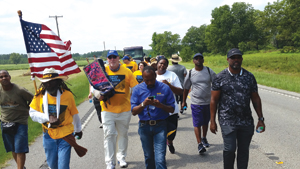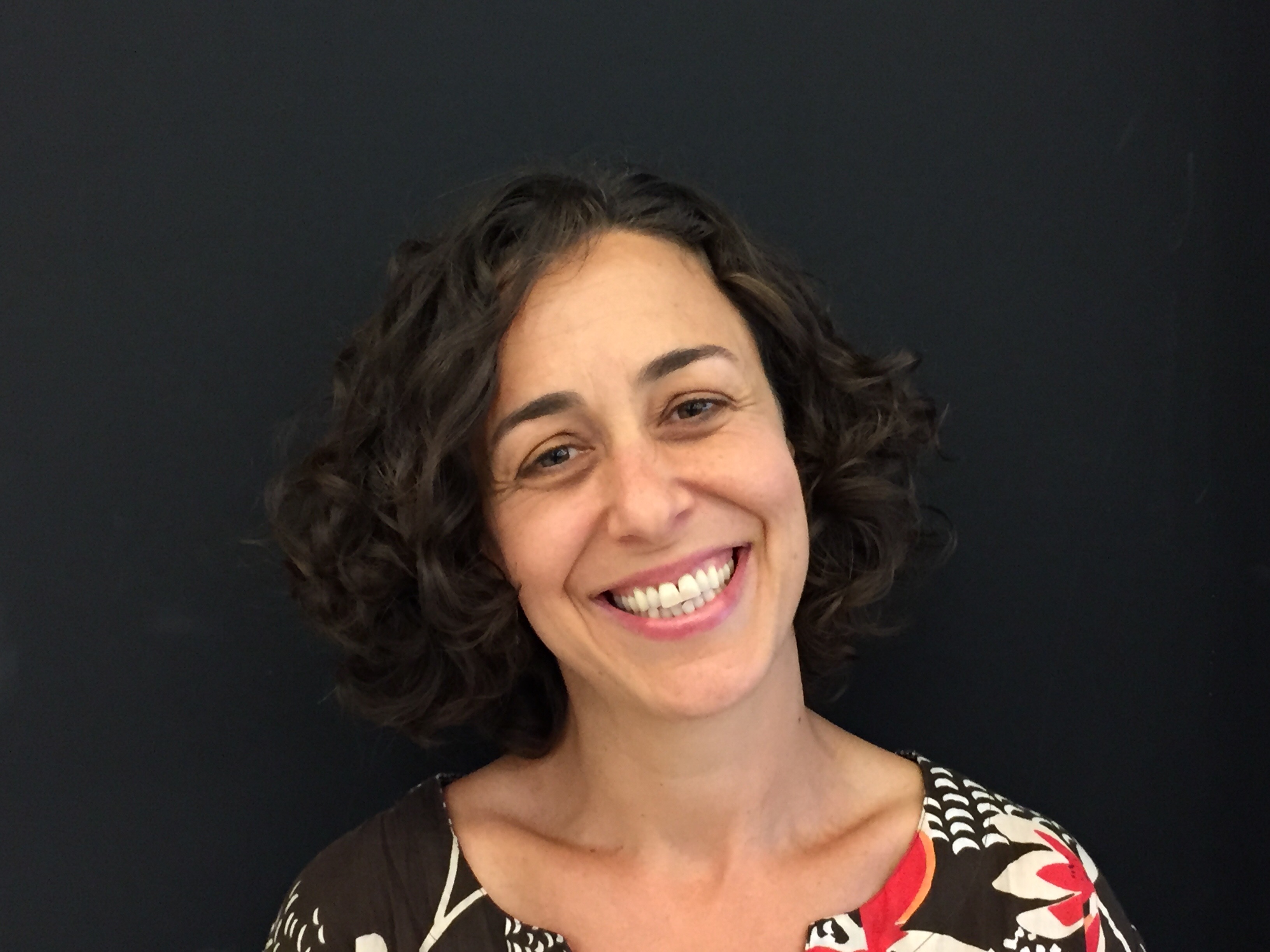Chappaqua Rabbi Walks in Commemoration of Civil Rights March

Not many people would volunteer to walk 20 miles in a day in the searing late summer heat.
But when Jonathan Jaffe headed to South Carolina late last month to take on that challenge, he did it for a greater cause than just to see if he could physically complete the journey.
On Aug. 27, the senior rabbi at Temple Beth El of Northern Westchester in Chappaqua took part in the NAACP-sponsored “America’s Journey for Justice,” a 40-day, 860-mile excursion on foot from Selma, Ala. to Washington, D.C. to commemorate the 50th anniversary of the three civil rights marches to Montgomery.
Through the Religious Action Center for Reform Judaism, Jaffe was one of about 200 rabbis from across the United States who signed up to join the NAACP for one day of the march.
Temple Beth El has had a long history of supporting social justice issues, Jaffe said of part of his motivation to march. Also, the American Jewish community in general has had a strong alliance throughout the generations with African-Americans and their civil rights struggles.
“For me personally, my generation missed on the civil rights movement, and here we are in 2015, where the exact same issues are prevalent in society and we’re all the more powerless to do anything about it,” Jaffe said. “If there’s one thing I can do, the least thing I can do, is be part of this march to demonstrate my support.”
Jaffe flew into Charlotte, then drove to Columbia, S.C. where he met up with the group and stayed the first night at a National Guard barracks. After a television crew accompanied the NAACP representatives for the first few miles of the day, Jaffe’s group walked two abreast along the edge of rural roads heading northeast toward Raleigh, N.C.
During the day, which started at about 8:30 a.m., Jaffe said he had fascinating conversations with fellow rabbis, all but one of whom he hadn’t known previously, and NAACP members. He also got to have conversations with the organization’s president and clergy from black congregations.
Jaffe said the effort was more than symbolic; it represented opportunities to open lines of communication, particularly helping to deal with difficult issues such as prison reform and the Black Lives Matter movement. Having dialogue is a good start.
“We have the ability to bring together groups of people toward a positive goal,” Jaffe said of him and his fellow clergy. “To the greatest extent possible, if we can create opportunities for engagement, even if it’s just to get to know one another and talk about your stories and histories, we’re telling each other who we are, I think you’re taking that first big step and action can take place soon after that. We can be an anti-polarizing factor in society.”
While the experience was overwhelmingly positive, there were a couple of tense moments. In one town, as the marchers passed a gas station, a Confederate flag was unfurled, Jaffe said. In another instance, a motorcycle driver made sure to roar his bike close to the marchers, then circled back and did it again.
But there were also uplifting acts of kindness. The owner of a hot dog stand in Bethune, S.C. heard the marchers were approaching and invited the group into the establishment for lunch.
Jaffe had hoped to meet up with the marchers again when it reached Washington on Sept. 15, but for him and his fellow rabbis that will prove difficult since it coincided with Rosh Hashanah, the Jewish New Year.
Although Jaffe realizes that the one day on the road wasn’t anything close to what the civil rights marchers faced in Alabama in 1965, it had a positive impact on his own outlook.
“It left me inspired to want to do more when I got home,” Jaffe said.

Martin has more than 30 years experience covering local news in Westchester and Putnam counties, including a frequent focus on zoning and planning issues. He has been editor-in-chief of The Examiner since its inception in 2007. Read more from Martin’s editor-author bio here. Read Martin’s archived work here: https://www.theexaminernews.com/author/martin-wilbur2007/

